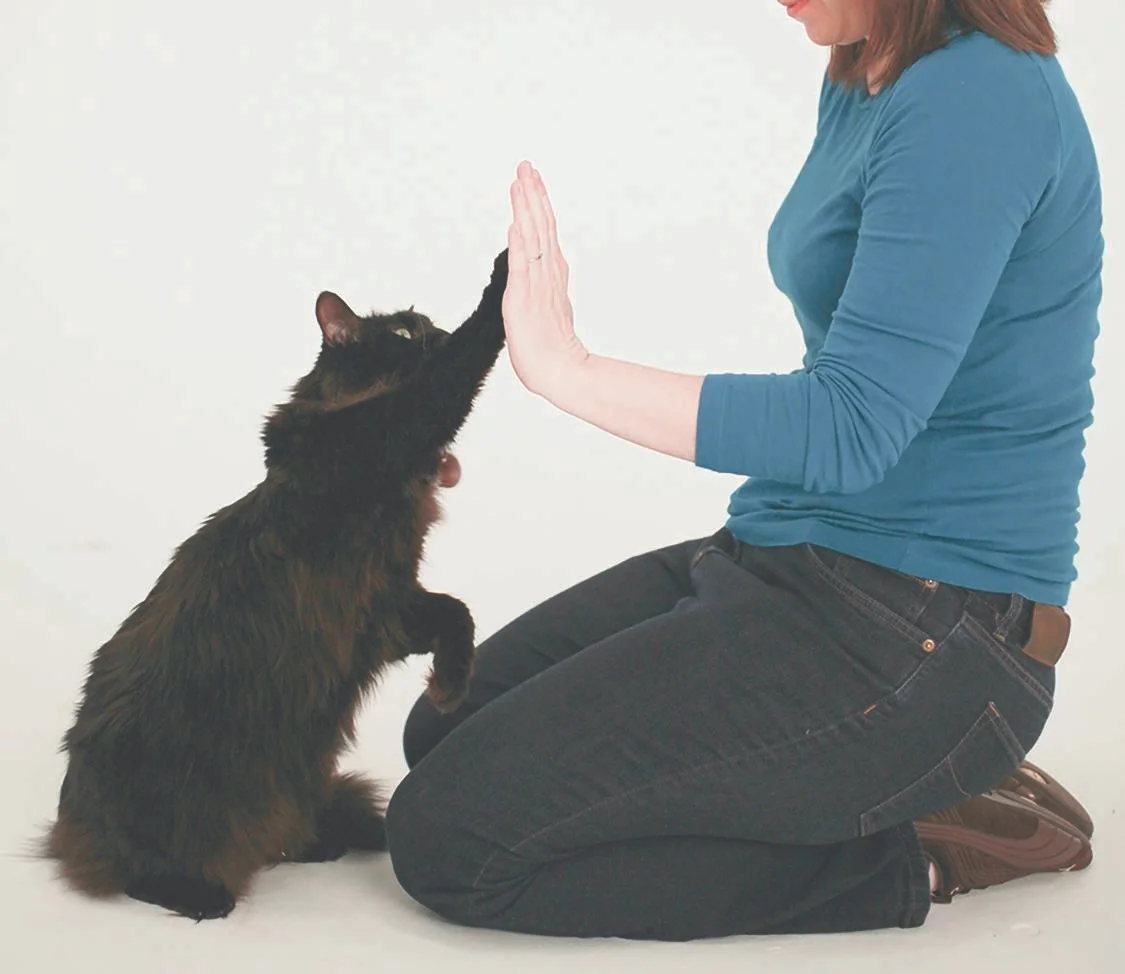
Some may be surprised to learn that the Dumb Friends League has an entire team of dedicated employees and volunteers who provide specialized behavior care to the animals who come to our shelters. In fact, our behavioral team collectively spent more than 25,500 hours last year working with animals and supporting them through each difficult transition – from their first days under our roof to adjusting to post-adoption life. We consider this work – and our ability to provide such services – to be a privilege, not to mention essential to ensuring the best possible outcomes for the animals we serve.
It’s also part of being a Socially Conscious Shelter. As such, the League is committed to placing every healthy and safe animal in a loving home. Part of this commitment is providing veterinary and behavioral support to the homeless animals in our care, as well as learning opportunities and resources for the broader community. Through individualized attention, thoughtful placements, and robust post-adoption support for pets and people, we seek to help animals build or regain trust, so they feel confident to bond with a new family and embark on the next chapter of their lives.
So, how do we do this, you may ask? Keep reading to learn about our Behavioral Support programs and resources.
Behavior testing and evaluation. All animals undergo a comprehensive evaluation shortly after arriving at the League, which, in part, helps us determine if additional behavior care or resources are needed. Because pain and discomfort from underlying conditions or traumatic experiences can significantly impact an animal’s behavior, our Shelter Veterinary Services and Behavioral Support teams work in close collaboration.
Additionally, we may test a dog to see how they respond to other dogs. This process is helpful in determining what level of behavior care is needed to support well-being, assessing safety, and making successful adoption matches.
Feline Fortitude and K9 Courage. These programs are tailored for cats and dogs, respectively, who are not quite ready for adoption because of challenging behaviors exhibited at intake or noted in their histories. Examples of such behaviors include fear, high arousal, barrier reactivity, overstimulation, and body handling sensitivity. Behavior Technicians and trained volunteers support these animals by using positive reinforcement to encourage desired behaviors and redirect unwanted or harmful behaviors.
Headstart. This supplemental program provides adoptable dogs with enrichment and continued behavior modification in the shelter as they wait to find a new home. Most graduates of K9 Courage transition to the Headstart program, where training is customized to meet each dog’s particular needs.
Kitty Comfort, Cats N’ Clickers, and Play Therapy. Life in a shelter can be a stressful experience for any animal to endure. Shelter cats will often experience anxiety, frustration, depression, and boredom during their stay. These three League programs provide interactive play, energy release, positive behavior reinforcement, mental stimulation, and affectionate human interaction for adoptable cats in need of extra support.
Enrichment. Our team continually looks for ways to alleviate the stress and tedium of kennel life. Animals in shelters may display unwanted behaviors that make their adoptions more challenging simply because they have limited opportunities to sniff, chew, hunt, scratch, burrow, play off-leash, and do all the things happy animals instinctively love to do! Daily enrichment at the League includes walks and yard time, food puzzle games, social interaction, grooming, and opportunities for privacy and sensory stimulation.
Thoughtful matching and adoption counseling. Our adoption and behavioral teams spend time meeting with patrons through in-depth pre-adoption consultations. We want to make sure a potential adopter’s needs and lifestyle are well-aligned with those of the animal pulling on their heartstrings. We also offer potential adopters the opportunity to introduce their pet dog to a dog they’re considering adopting to assess for compatibility.
Further, we think it is important to give adopters a realistic sense of what they can expect once they bring an animal into their home. Considerations may include ongoing medical care responsibilities, activity needs and preferences, or whether an animal could safely and comfortably live with another family pet.
Pre-adoption behavior seminars. In the fall of 2022, our behavior specialists launched an interactive, community education program for people committed to the responsibility of adopting dogs who have historically been overlooked or rejected due to behavioral challenges. This seminar series seeks to encourage potential adopters (nay, heroes) and empower them with free resources and strategies to support their relationship with a worthy dog who has a higher level of need.
Behavior Helpline. The League offers free and unlimited 30-minute telephone appointments for people with animal behavior questions and concerns. These sessions may be scheduled online at ddfl.org/pet-behavior-resource-center. (Emergency appointments may also be arranged.) We have also hired our first bilingual behavior specialist and are excited to provide community resources in both English and Spanish later this year!
Online behavior resources. Do you have a question about housetraining your puppy? Perhaps you’re wondering how to introduce your cat to a new baby? Uncertain where to start with your recently adopted rabbit? The League maintains an extensive online resource library, searchable by topic, to help you navigate all aspects of pet ownership and behavior. Just visit ddfl.org/pet-behavior-resource-center to begin exploring today!
